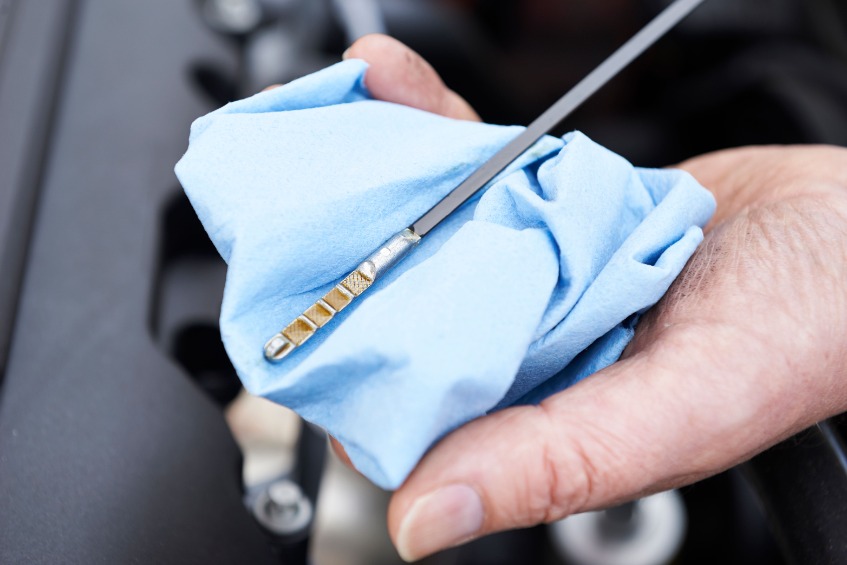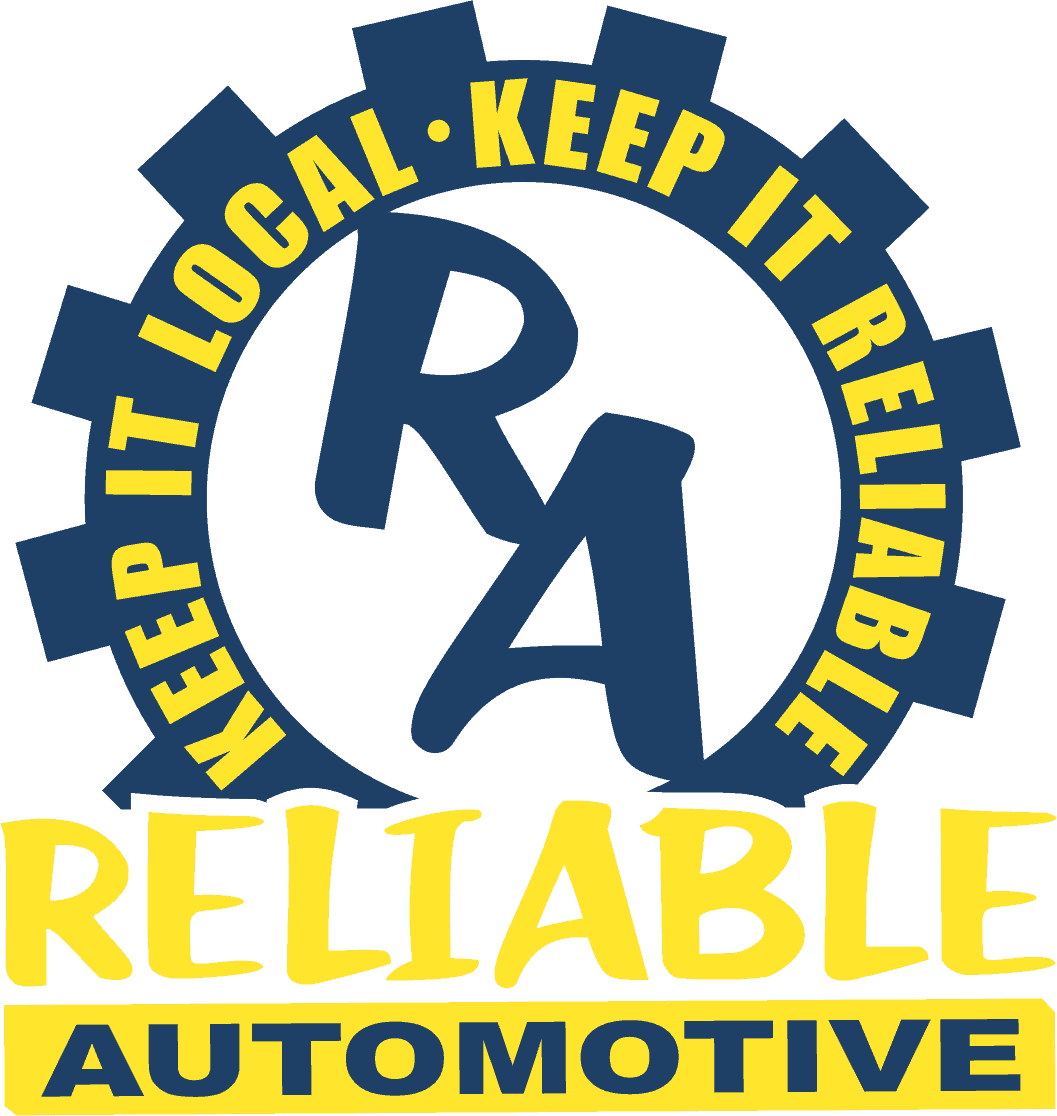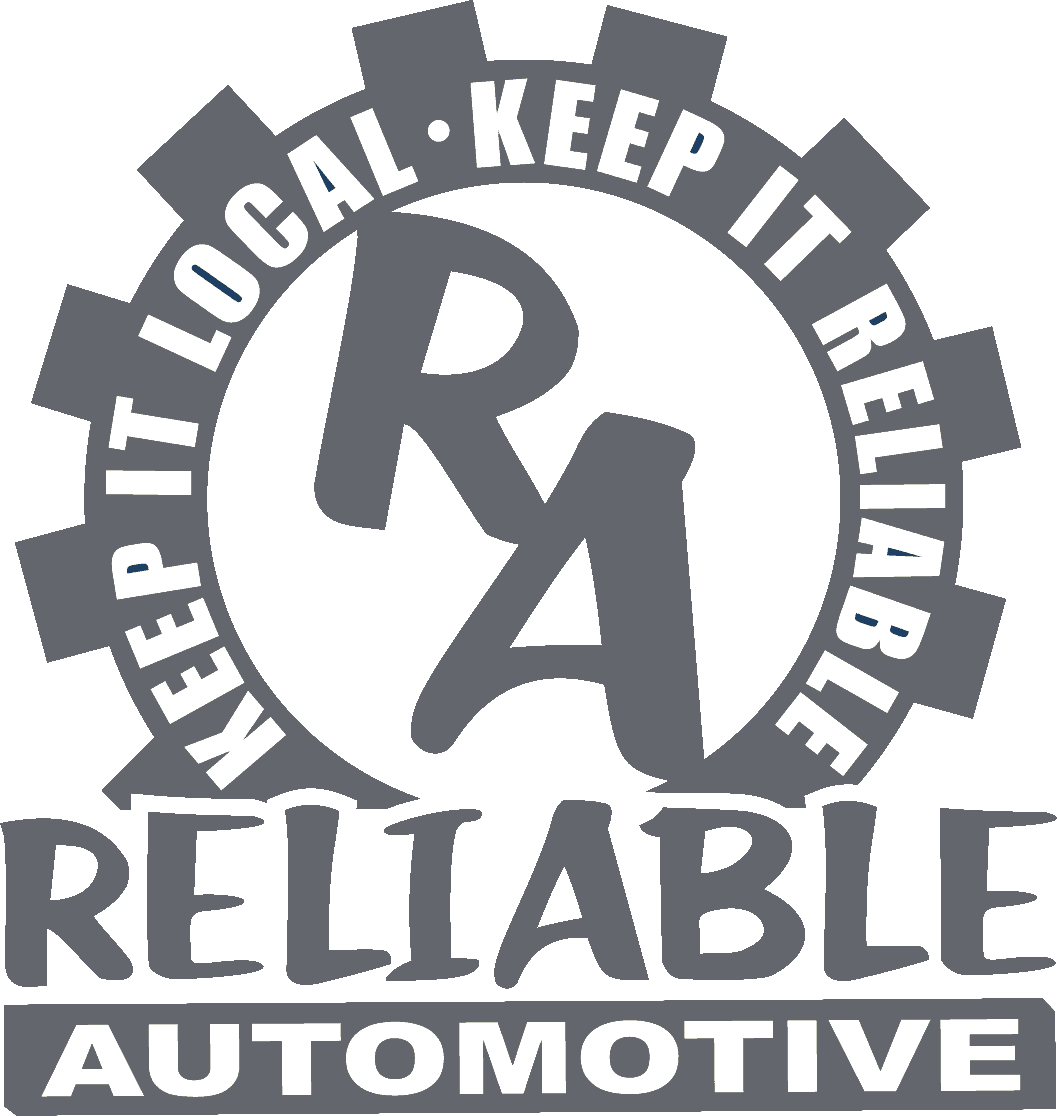
Following your vehicle’s recommended preventative maintenance routine is critical. Doing so will help keep it running at its best while also helping to extend its lifespan as long as possible. Professional oil change service is one key part of this preventative maintenance. This service is the easiest, most effective, and least expensive way to ensure that your vehicle’s engine stays clean, protected, and running optimally.
Most cases of engine failure are caused by vehicle owner neglect. So, keeping up with the manufacturer-recommended oil change schedule will prevent undue stress on your engine and expensive repairs or engine replacement down the road.
Many people don’t think much about oil changes other than that they need to be done occasionally. However, having a deeper understanding of this service can be valuable knowledge.
For that reason, we’ve put together this oil change guide with everything you need to know about oil change services. We’ve covered the benefits of an oil change, what happens during one, how often an oil change needs to be done, and even answers to some of the most frequently asked questions about this service.
Benefits of Keeping Up with Routine Professional Oil Change Service
You may not know much about oil changes other than the fact that it needs to be done every few months. However, some specific and important benefits come from ensuring that your engine has good, clean oil running through it. These include:
Reducing Excess Metal-on-Metal Friction and Engine Wear
Metal grinding on metal is the last sound you want to hear coming from your engine. But once the engine oil and filter get too old and dirty, that’s exactly what will happen. One of the most important roles that clean oil plays is to keep delicate engine components properly lubricated. When oil is overly dirty, it cannot effectively perform this task, and eventually, these parts will begin to rub directly against each other. This can end up causing the engine to seize up totally. When that happens, your vehicle will be undrivable and need to be towed to your closest auto repair shop for significant and expensive engine repair.
Keeping the Engine Clean and Free of Contaminants
Your engine is the most important thing to keep clean in your vehicle, which is exactly what good, clean engine oil does. As the oil cycles through the engine, it traps the dirt, debris, and grime that can build up inside, keeping it clean and free of contaminants. However, engine oil can only absorb so much. If it isn’t changed routinely, the oil will become ineffective, and the filter can get clogged with dirt, leading to expensive engine damage.
It is important to note that when the oil level is low, simply adding a little new oil to the existing oil is not an effective solution. This diluted oil mixture will not be able to effectively keep your engine clean and protected.
Preventing Rust and Corrosion Within the Engine
Rust and corrosion are two of the most harmful reactions that can happen to the metal parts inside your engine. That is why engine oil is also designed to help prevent both of these things from building up within your engine. So, routine oil changes will ensure that the oil can continue doing this job effectively and protect your engine components.
Absorbing Excess Engine Heat
All the moving metal parts in a running engine generate a significantly high level of heat. Without protection, the engine can quickly overheat. Clean oil works to effectively absorb the excess heat that builds up in the engine. However, if the engine oil is old and/or overly dirty, it can’t properly do this. It can even begin to reflect the heat, which causes an even bigger problem within the engine.
Optimizing Your Gas Mileage
As you can see, clean oil enables the engine to run smoothly and without excess friction, heat, and buildup. A smooth-running engine also means that you will be getting the best gas mileage possible. Dirty oil and a dirty oil filter cause an engine to work harder, significantly reducing your vehicle’s fuel efficiency.
Giving an Opportunity for Other Issues to Be Identified
A professional oil change service also allows your mechanic to inspect the vehicle for any other issues that may be present. This prevents small issues from having the chance to turn into bigger and much more expensive problems later. Here at Reliable Auto, our mechanics will not only perform a top-quality oil change service but also do a thorough multi-point vehicle inspection.
What a Professional Oil Change Service Involves
For some people, going the DIY oil change route can be tempting. However, even though it may seem like a simple and easy task, a properly done oil change is actually an in-depth service that should be left to the professionals.
A full-service oil change performed at a professional auto service shop will include the following:
- Draining and properly disposing of the old dirty oil
- Removing the oil filter and installing a new clean filter
- Refilling the engine with the proper amount of new high-quality oil
- Lubricating the vehicle’s high-wear areas, including the chassis, hood, and door hinges
- Inspecting the engine air filter and the in-cabin air filter
- Inspecting the condition of the other system fluids in the vehicle, including the brake, transmission, and power steering fluids
- Topping off the windshield wiper fluid and coolant as needed
- Checking the wiper blades, tire pressure, battery, lights, belts, and hoses
As you can see, there is a lot more than people realize happening during an oil change. All of which help keep your vehicle running at its best.
How Often an Oil Change Service Should Be Done
One of the most frequently asked questions about oil change services is how often they should be done. Unfortunately, there is no one-size-fits-all answer to this question. A variety of factors influence the best oil change schedule for each vehicle. However, your owner’s manual that came with the vehicle will give you an exact answer for yours.
Though, there are some general guidelines that can help at least give you an idea of how often oil changes should be done:
- With conventional oil, it should be changed every 3,000 miles.
- When using synthetic blend oil, it should be changed every 5,000 miles.
- With full-synthetic oil, it should be changed between every 5,000 and 7,500 miles.
- Oil change service should be done more frequently as the vehicle ages and overall mileage increases.
- Oil changes should also be done more often if you are frequently towing and/or carrying heavy loads or driving in stop-and-go traffic.
- If the engine is burning oil and/or producing smoke routinely, the oil will need to be changed more frequently.
The ASE-certified mechanics here at Reliable Auto can help you determine the best type of oil and oil change schedule for your vehicle.
Plus, if you are searching for oil change coupons, make sure to check out our Coupons page for all of the latest deals to help make your service even more affordable and make keeping up with preventative maintenance even easier.
Signs That Your Vehicle May Be Past Due for an Oil Change
There are several red flags to be mindful of that indicate your engine may be overdue for an oil change service, including:
- The oil looks darker than normal.
- There are flecks of metal on the dipstick.
- The dipstick indicates a low oil level.
- There is reduced engine performance.
- There are loud and unusual noises coming from the engine.
- The “Check Engine” light is illuminated.
If any of the above things happen, bring your vehicle to your closest Reliable Auto location for an inspection and full-service oil change.
How to Check Your Oil (Properly!)
Knowing exactly how to properly check your vehicle’s oil is extremely beneficial. Doing so can help keep your vehicle running its best between your scheduled oil change appointments. Here’s a quick breakdown of how to check your oil:
- Ensure the vehicle is parked on level ground and the engine is off.
- Lift the hood and locate the oil dipstick. It will usually have a bright yellow or orange ring handle and be marked with an oil-can symbol.
- Pull the dipstick out completely and wipe the oil off with a rag or paper towel.
- Fully reinsert the dipstick back into the tube.
- Slowly pull the dipstick back out and look at the oil level compared to the stick’s markings. The markings can be two lines or the words “Low,” “Add,” and “Safe.”
- If the dipstick indicates a low oil level, add a quart of the correct oil and get your vehicle to the shop as soon as possible. Don’t ignore low oil levels because doing so can end up causing significant engine damage.
This is a general recap of the process. Make sure to check your vehicle owner’s manual for more specific information on checking your oil.
Answers to the Most Frequently Asked Questions About Oil Change Service
To help you even better understand this critical vehicle maintenance service, we’ve compiled the answers to some of the most frequently asked questions about professional oil change services:
How much should an oil change cost?
The answer to this question is highly dependent on your location, the type of vehicle, and the type of oil used. Typically, a conventional oil change service will cost between $35 and $75. For a full synthetic oil change, you should expect to pay anywhere from $65 to $125. But because synthetic oil lasts longer and needs to be changed less frequently, you make up some of the cost of the service. That being said, Reliable Automotive has several oil change specials to save you money on these services!
Will my car run better after an oil change?
A clean and lubricated engine is a happy engine. Oil changes protect the engine components, reduce the need for your engine to work harder, and improve fuel economy. Dirty oil loses the viscosity required to properly maintain its functions, affecting the vehicle’s performance. So, yes, you will notice improved engine performance after an oil change, especially if it has been a while since your last one.
Is synthetic oil really better than conventional oil?
Yes, synthetic oil is better overall for your engine than conventional oil. Although conventional mineral oil can provide adequate lubrication, it can’t compete with the overall protection and engine performance provided by synthetic oil. Therefore, all of the refinement that happens in a lab for synthetic oils really makes a difference on the road.
This is mainly because synthetic oil uses higher-quality base oils than the less-refined base oils used in conventional oils. This makes conventional oils:
- Become less chemically stable
- Oxidize more easily
- Break down quicker and lose their protective qualities
Overall, full-synthetic oils provide better performance than both conventional and synthetic blend engine oils.
What’s the difference between a synthetic blend and full-synthetic oil?
The main difference between a synthetic blend and full-synthetic oil is that a synthetic blend oil mainly uses conventional base oils with some synthetic oil, while full-synthetic oil uses only higher-quality synthetic base oils.
Because synthetic blend oils use crude oil as their base, they will have more impurities. Alternatively, the high-quality, refined base oils that make up the full synthetic oil have much fewer impurities and more uniformly-sized molecules.
Which type of oil should I use in my vehicle’s engine?
This is another question that does not have a one-size-fits-all answer. The best thing to do is to go with the oil that has the viscosity rating that your vehicle’s manufacturer recommends. Viscosity is a rating allocated by the Society for Automotive Engineers that refers to the weight of oil and how well it flows at different temperatures.
Normally, a range of oils will be recommended to account for different environments and driving habits. The two most common viscosity ratings are 5W-30 and 10W-30. The lower the first number, the thinner the oil is.
And, yes, you can switch between full-synthetic, synthetic blend, and conventional oils. Doing so will not cause problems for your vehicle.
If you are having trouble determining which type of oil you should use in your vehicle, we can help! Your Reliable Auto oil change specialist will be happy to provide their expert advice.
What does a full-service oil change consist of?At a professional auto service shop, a full-service oil change will include the following:
- Draining all of the old dirty engine oil
- Replacing the old filter with a new clean oil filter
- Refilling your engine with the proper amount of new oil
- Lubricating the chassis, door hinges, and hood
- Inspecting the condition of the other system’s fluids, including the brake, transmission, and power steering fluid
- Topping off the coolant and windshield washer fluid as needed
- Checking the tire pressure, battery, wiper blades, lights, belts, and hoses
- Inspecting the air filters, including the engine and the in-cabin filters
How long does an oil change take?A professional oil change service normally takes about 30 to 45 minutes. It will take a little longer if your tires need to be rotated or balanced or an air filter needs to be changed.
What happens if you don’t change your oil?The engine will show a growing number of issues the longer an oil change is postponed. Most commonly, the engine will simply start getting too hot, which can quickly cause problems. The heat can warp parts of your engine and cause a heat gasket to blow. Also, when there is not a proper level of lubrication to keep the engine’s moving metal parts from coming into contact with each other, the friction can cause severe damage to the components.
When old oil has cycled through the engine enough times and built up a huge volume of dirt and deposits, it will cause a thick dark sludge with little to no lubricating qualities. In the worst cases, this sludge can become so dense that the engine components have to fight through it to move.
So, to put it simply, if the oil is not changed, the entire engine will end up shutting down and need to be replaced.
Keep Your Engine Performing Its Best with Routine Oil Change Service
Following a routine schedule of oil change services is the easiest and best way to keep your engine protected and running at its best. If you don’t do it, you can soon find yourself dealing with overheating, worn internal engine components, and even a totally seized-up engine.
If you are searching for an oil change in San Marcos, Kyle, or Buda, the ASE-certified master mechanics here at Reliable Auto have got you covered!
Our expert service team is here to meet all of your vehicle’s auto service needs, from routine full-service oil changes to in-depth engine repair and everything in between.
Schedule your appointment for a top-quality oil change service today!






